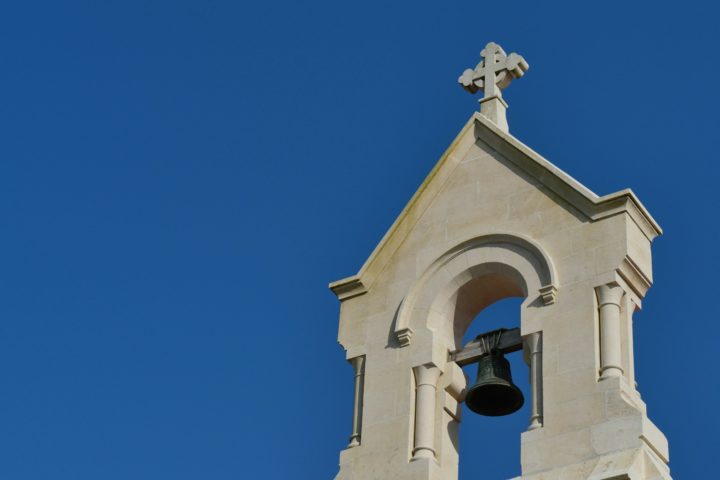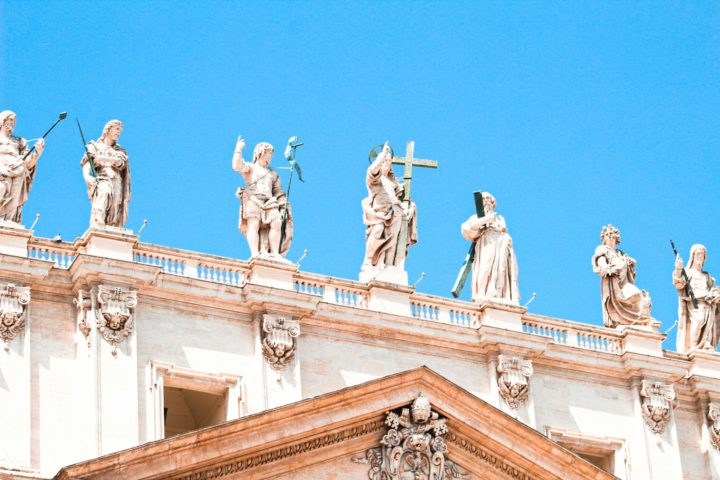Centerfold Articles 主日刊文章 (Page 24)
就是现在了
吕立仁弟兄笔于2013年7月29日 末世的警钟已敲响,越来越急促;然而,在我们当中似乎有掉了队的;弟兄啊!来吧!让我们把发酸的手挺起来,弟兄啊!来吧!让我们一起携手走进神永恒的国度。 末世的警钟已敲响,信主的人啊!醒来吧!不要再沉睡;来吧!让我们一起把灯点着,来吧!让我们一起警醒等侯主再来。 末世的警钟已敲响,爱主的人啊!起来吧!神已把责任托付了我们;来吧!穿上祭司袍,因我们是神君尊的祭司。来吧!让我们举起圣洁的双手向神祷告。 末世的警钟已敲响,神的儿女啊!昂起头来!穿上神所赐的全副军装;来吧!让我们如灯照亮,因我们是被拣选的族类。来吧!让神的每一句话都流露在我们生活的点点滴滴中。 末世的警钟已敲响,所有蒙恩得救的人!我们负有主吩咐的大使命;我们都是主的门徒,我们还有主的大使命要完成。来吧!让我们走进人群中讲述主耶稣的救恩。来吧!让我们在人群中活出主赐给我们又丰盛又馨香的生命。 末世的警钟已敲响,我是否依然是忠心又良善的仆人?我是否依然期待着主快快再来?末世的警钟已敲响, 越来越急促。
Living in the Fullness of Christ
23 July 2023 Teaching of Rev. Lai translated by Rev Zheng Let’s begin with the Tithing Command How much should we give to the church? Since the religious revolution, the most common teaching is to give a tenth. This teaching comes from a few bible passages. Many spiritual writings contain comprehensive analyses of these passages. The emphasis of this article is on the practicality of this instruction. When Abraham led an army of 318 men to rescue his nephew Lot,…
布告栏上的生活信仰宣告
2023年8月6日 「我不以福音为耻,这福音本是神的大能,要救一切相信的,先是犹太人,后是希腊人。」罗马书1:16 「神必供应」 「我找到了!」 「我们是一家人」 「主喜乐充满我心!」 「人生虽然短暂,生命却是永恒。」 「主爱我一生, 甚至我做神不喜悦的事,祂依然爱我。」 「只有当主许可」—— 因为我生命的主宰不是我,乃是神. “God will provide” “We should not criticize or exclude others” “Someone has won my heart, therefore I can never be who I was!” “Only if God allows” – for I am no longer the master of my life. God is. “We should never exclude him because God would never exclude anyone who wishes to come into His Kingdom.” “Everyone is not perfect, including you and I. So let’s work…
去,使万民作我的门徒 – Truth Baptist Church
2023年7月2日郑牧师字 「…奉父、子、圣灵的名为他们施洗,凡我所吩咐你们的都教训他们遵守…」 我们第一次的奋兴营终于在期盼中来到,也在依依不舍中过去了。我们的心情如同彼得在圣山上一样:「主啊,我们在这里真好!」 除了享受茶余饭后近距离的联谊,更叫我们心灵饱足的是神通过祂的仆人尽扬牧师 (Pastor Jim Yost 的简称) 给我们灵魂的喂养和滋润。我引用赖师母在长者团契中精简的总结: 「我们不能再关闭在教堂的建筑物里,我们要出去到不同的人群中宣扬神;我们不是像在讲台讲道那样传,而是通过我们生命的改变、生活信仰的宣告、分享基督在我们生命中作为。」这里我扼要地分享两个我们要掌握的新功课。 (一) 生活信仰宣告Shima Statement。我们若是为主而活,必定有一些事情是与别人不一样的。找出身边的人对我们的生活感到诧异的地方,比如:为什么你用这么多时间在教会?为什么你和媳妇能够这么融洽相处?为什么你能够这样忍气吞声被那位同事占便宜?然后写下这些问题的信仰宣告,下次有人问起你的缘由,你就可以告诉他。你的信仰宣告不应当是理论性的,而是能触动不认识神的人的心弦,使他因此想进一步认识你的神。祷告,写下来,修改直到你满意为止,背起来,预备随时讲给人听。 (二) 三分钟归主见证。这有异于个人布道。「三分钟」要求我们将自己信主的过程浓缩,重点性地讲出来,扣住他的注意力。第一分钟讲你归主前的活在罪中的状态,第二分钟讲主如何抓住你,第三分钟讲你归主后的生活状态。每一分钟都有其重点。祷告,写下来,读给一位弟兄听,重复修改,背起来,预备随时讲给人听。 你将在你的团契中学习、练习,彼此激发把各人的生活信仰宣告和三分钟归主见证应用出来。弟兄姐妹,不要怕做得不好,当神悦纳你的心,就必悦纳你的工作:「再者,你们晓得,现今就是该趁早睡醒的时候,因为我们得救,现今比初信的时候更近了。」
Go, Make Disciples of All Nations
2 July 2023 Written by Rev Zheng “…baptizing them in the name of the Father and of the Son and of the Holy Spirit, 20 and teaching them to obey everything I have commanded you” Mat 28:19-20 Our church’s first revival camp came with much longing and passed with considerable reluctance. We share Peter’s sentiments on the sacred mountain that morning: Lord, it is pleasant and beautiful for us to be here! Apart from the strong connection formed over…






